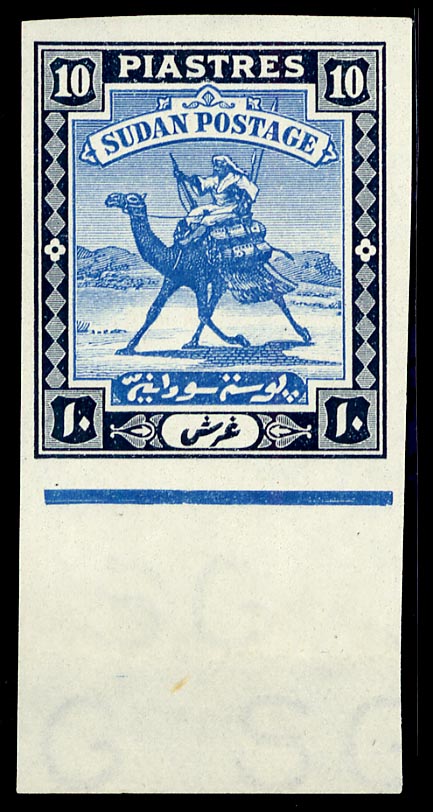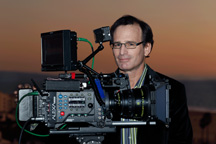|
Cinema Of Sudan
Cinema of Sudan refers to both the history and present of the making or screening of films in cinemas or film festivals, as well as to the persons involved in this form of audiovisual culture of the Sudan and its history from the late nineteenth century onwards. It began with cinematography during the British colonial presence in 1897 and developed along with advances in film technology during the twentieth century. After independence in 1956, a first era of indigenous Sudanese documentary and feature film production was established, but financial constraints and discouragement by the Islamist government led to the decline of cinema from the 1990s onwards. In the 2010s, several initiatives by Sudanese filmmakers both in Khartoum as well as in the Sudanese diaspora have brought about a revival of filmmaking and public interest in film shows in Sudan. Since 2019, a new generation of Sudanese filmmakers such as Hajooj Kuka, Amjad Abu Alala, Suhaib Gasmelbari, Marwa Zein and ... [...More Info...] [...Related Items...] OR: [Wikipedia] [Google] [Baidu] |
History Of Film
The history of film chronicles the development of a visual art form created using film technologies that began in the late 19th century. The advent of film as an artistic medium is not clearly defined. However, the commercial, public screening of ten of the Lumière brothers' short films in Paris on 28 December 1895 can be regarded as the breakthrough of projected cinematographic motion pictures. There had been earlier cinematographic results and screenings by others like the Skladanowsky brothers, who used their self-made Bioscop to display the first moving picture show to a paying audience on 1 November 1895 in Berlin, but they lacked neither the quality, financial backing, stamina, or the luck to find the momentum that propelled the cinématographe Lumière into worldwide success. Those earliest films were in black and white, under a minute long, without recorded sound and consisted of a single shot from a steady camera. The first decade of motion pictures saw film mo ... [...More Info...] [...Related Items...] OR: [Wikipedia] [Google] [Baidu] |
Suhaib Gasmelbari
Suhaib Gasmelbari (born 17 December 1979, Omdurman, Sudan) is a Sudanese film director, screenwriter, and cinematographer. Biography Gasmelbari was born in Omdurman, Sudan in December 1979. He lived parts of his early childhood in Russia before returning to Sudan. At the age of 16, Gasmelbari went into exile in the United Arab Emirates to avoid the forced military conscription implemented by the government of Sudan in the midst of the Second Sudanese Civil War. In the Emirates, he finished high school. He later briefly attended a university in Alexandria, Egypt, before moving to Tours, France in 2002 with the intention of learning French language and studying literature and philosophy. Gasmelbari later studied cinema at the University of Paris 8 Vincennes-Saint-Denis. After graduation, he found work as a freelance cameraman and editor, working with journalists on reports for Al Qarra, Al Jazeera and France 24 TV stations. For his master's degree, Gasmelbari attempted to direct ... [...More Info...] [...Related Items...] OR: [Wikipedia] [Google] [Baidu] |
El-Obeid
El-Obeid ( ar, الأبيض, ''al-ʾAbyaḍ'', lit."the White"), also romanized as Al-Ubayyid, is the capital of the state of North Kurdufan, in Sudan. History and overview El-Obeid was founded by the pashas of Ottoman Egypt in 1821. It was attacked by the Mahdists in September 1882, and, after capitulation, was subsequently destroyed in 1883. It was then rebuilt on a modern plan in 1898, following the fall of the Mahdist empire. In 2008, its population was 340,940. It is an important transportation hub: the terminus of a rail line, the junction of various national roads and camel caravan routes, and the end of a pilgrim route from Nigeria. As regional commercial centre, it is known for products such as gum arabic, millet, oilseeds, and livestock. The population of El-Obeid today is majority Muslim, with a small Christian presence. The town is the site of an airport and an oil refinery. El-Obeid is home to the University of Kordofan, one of the largest universities in Sud ... [...More Info...] [...Related Items...] OR: [Wikipedia] [Google] [Baidu] |
Amphitheatre
An amphitheatre (British English) or amphitheater (American English; both ) is an open-air venue used for entertainment, performances, and sports. The term derives from the ancient Greek ('), from ('), meaning "on both sides" or "around" and ('), meaning "place for viewing". Ancient Roman amphitheatres were oval or circular in plan, with seating tiers that surrounded the central performance area, like a modern open-air stadium. In contrast, both ancient Greek and ancient Roman theatres were built in a semicircle, with tiered seating rising on one side of the performance area. Modern parlance uses "amphitheatre" for any structure with sloping seating, including theatre-style stages with spectator seating on only one side, theatres in the round, and stadia. They can be indoor or outdoor. Natural formations of similar shape are sometimes known as natural amphitheatres. Roman amphitheatres About 230 Roman amphitheatres have been found across the area of the Roman Empire. ... [...More Info...] [...Related Items...] OR: [Wikipedia] [Google] [Baidu] |
King George V
George V (George Frederick Ernest Albert; 3 June 1865 – 20 January 1936) was King of the United Kingdom and the British Dominions, and Emperor of India, from 6 May 1910 until his death in 1936. Born during the reign of his grandmother Queen Victoria, George was the second son of Albert Edward, Prince of Wales, and was third in the line of succession to the British throne behind his father and his elder brother, Prince Albert Victor. From 1877 to 1892, George served in the Royal Navy, until the unexpected death of his elder brother in early 1892 put him directly in line for the throne. On Victoria's death in 1901, George's father ascended the throne as Edward VII, and George was created Prince of Wales. He became king-emperor on his father's death in 1910. George's reign saw the rise of socialism, communism, fascism, Irish republicanism, and the Indian independence movement, all of which radically changed the political landscape of the British Empire, which itself reached ... [...More Info...] [...Related Items...] OR: [Wikipedia] [Google] [Baidu] |
Anglo-Egyptian Sudan
Anglo-Egyptian Sudan ( ar, السودان الإنجليزي المصري ') was a condominium of the United Kingdom and Egypt in the Sudans region of northern Africa between 1899 and 1956, corresponding mostly to the territory of present-day Sudan and South Sudan. Legally, sovereignty and administration were shared between both Egypt and the United Kingdom, but in practice the structure of the condominium ensured effective British control over Sudan, with Egypt having limited, local power influence in reality. In the mean time, Egypt itself fell under increasing British influence. Following the Egyptian Revolution of 1952, Egypt pushed for an end to the condominium, and the independence of Sudan. By agreement between Egypt and the United Kingdom in 1953, Sudan was granted independence as the Republic of the Sudan on 1 January 1956. In 2011, the south of Sudan itself became independent as the Republic of South Sudan. In the 19th century, whilst nominally a vassal state of the ... [...More Info...] [...Related Items...] OR: [Wikipedia] [Google] [Baidu] |
Silent Film
A silent film is a film with no synchronized recorded sound (or more generally, no audible dialogue). Though silent films convey narrative and emotion visually, various plot elements (such as a setting or era) or key lines of dialogue may, when necessary, be conveyed by the use of title cards. The term "silent film" is something of a misnomer, as these films were almost always accompanied by live sounds. During the silent era that existed from the mid-1890s to the late 1920s, a pianist, theater organist—or even, in large cities, a small orchestra—would often play music to accompany the films. Pianists and organists would play either from sheet music, or improvisation. Sometimes a person would even narrate the inter-title cards for the audience. Though at the time the technology to synchronize sound with the film did not exist, music was seen as an essential part of the viewing experience. "Silent film" is typically used as a historical term to describe an era of cinema pri ... [...More Info...] [...Related Items...] OR: [Wikipedia] [Google] [Baidu] |
Battle Of Omdurman
The Battle of Omdurman was fought during the Anglo-Egyptian conquest of Sudan between a British–Egyptian expeditionary force commanded by British Commander-in-Chief (sirdar) major general Horatio Herbert Kitchener and a Sudanese army of the Mahdist State, Mahdist Islamic State, led by Abdullah al-Taashi, the successor to the self-proclaimed Mahdi, Muhammad Ahmad. The battle took place on 2 September 1898, at Kerreri, north of Omdurman in Sudan. Following the establishment of the Mahdist Islamic State in Sudan, and the subsequent threat to the regional status quo and to British-occupied Egypt, the British government decided to send an expeditionary force with the task of overthrowing the Khalifa. The commander of the force, Sir Herbert Kitchener, was also seeking revenge for the death of Charles George Gordon, General Gordon, killed when a Mahdist army had Siege of khartoum, captured Khartoum thirteen years earlier. On the morning of 2 September, some 35,000–50,000 Sudanese ... [...More Info...] [...Related Items...] OR: [Wikipedia] [Google] [Baidu] |
Footage
In filmmaking and video production, footage is raw, unedited material as originally filmed by a movie camera or recorded by a ( often special) video camera, which typically must be edited to create a motion picture, video clip, television show or similar completed work. Footage may also refer to sequences used in film and video editing, such as special effects and archive material (for special cases of this, see stock footage and B roll). Since the term originates in film, footage is only used for recorded images, such as film stock, videotapes or digitized clips – on live television, the signals from video cameras are instead called ''sources''. History The origin of the term "footage" is that early 35 mm silent film has traditionally been measured in feet and frames; the fact that film was measured by length in cutting rooms, and that there are 16 frames ( 4-perf film format) in a foot of 35 mm film which roughly represented 1 second of screen time ( frame rate) in s ... [...More Info...] [...Related Items...] OR: [Wikipedia] [Google] [Baidu] |
Filmmaking
Filmmaking (film production) is the process by which a motion picture is produced. Filmmaking involves a number of complex and discrete stages, starting with an initial story, idea, or commission. It then continues through screenwriting, casting, pre-production, shooting, sound recording, post-production, and screening the finished product before an audience that may result in a film release and an exhibition. Filmmaking occurs in a variety of economic, social, and political contexts around the world. It uses a variety of technologies and cinematic techniques. Although filmmaking originally involved the use of film, most film productions are now digital. Today, filmmaking refers to the process of crafting an audio-visual story commercially for distribution or broadcast. Production stages Film production consists of five major stages: * Development: Ideas for the film are created, rights to existing intellectual properties are purchased, etc., and the screenplay is written ... [...More Info...] [...Related Items...] OR: [Wikipedia] [Google] [Baidu] |







